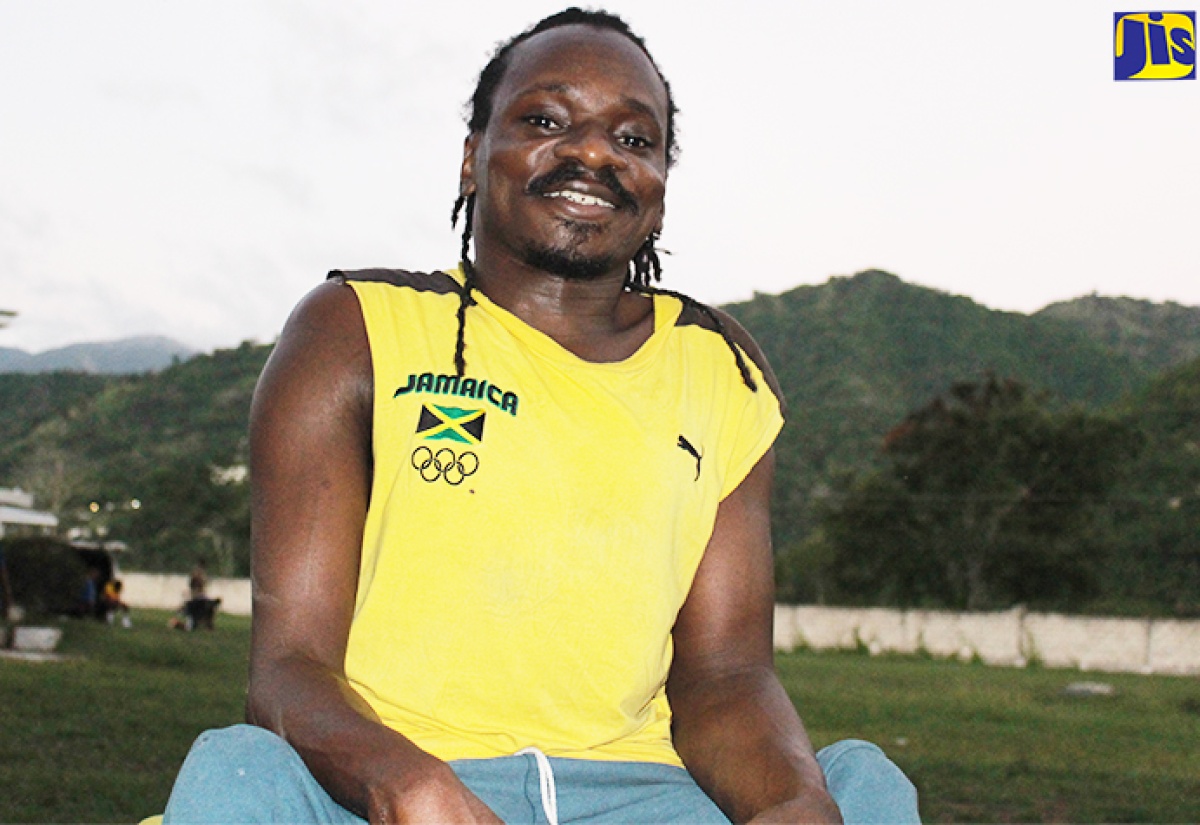‘I Gave Myself a Chance’ – Alphanso Cunningham Shares Story of Triumph
By: , January 3, 2017The Full Story
Abandoned at the Spanish Town Hospital and raised by the State, Paralympic athlete Alphanso Cunningham says he grew up with the belief he was doomed to a life of penury because of his physical disability.
But all that changed in 2000 after Paralympic coach Neville Sinclair encouraged him to shun the belief, and prophesied that he would become “a world beater” in the sport of javelin.
“I laughed at him and said, ‘never’,” Cunningham reflects in an interview with JIS News on the compound of the Sir John Golding Rehabilitation Centre, St. Andrew where he began his career as a javelin and discus thrower more than a decade ago.
With two Paralympic gold medals later and a major deal as corporate ambassador with Digicel, Cunningham admits he is often amazed by his own accomplishments.
“For somebody like me with a disability to become a brand ambassador for a major company; I wasn’t dreaming of that. Once, this was just for the able-bodied, but now when they [disabled persons] see this happening, they are motivated,” he says.
Osteogenesis
Cunningham reveals that he was the second child for his parents to be born with the condition osteogenesis imperfecta – a genetic disorder characterised by bones that break easily.
He says the story was told to him that not long after birth his parents – who were struggling financially and perturbed by the stigma of giving birth to two disabled children – dropped him off at the Spanish Town Hospital in St. Catherine and never returned.
From there he was placed at the Glenhope Place of Safety – a child care institution on Maxfield Avenue in Kingston.
While growing up in the State institution he would visit the Sir John Golding Rehabilitation Centre for physical therapy and also attend classes there.
It was at the centre that he first came in contact with his elder brother who was also physically disabled and who was raised by their parents.
He says, however, that it was only after leaving state care at age 18 that he reunited with the rest of his family, and went to live with a relative in Spanish Town.
But as destiny would have it, he never settled for too long inside the community.
“I got big and wanted some money and I just come up here [Sir John Golding Rehabilitation Centre] to find a job. I can draw well, so I used to do design painting for a company and got paid for it.”
Cunningham says he received training as an Orthopaedic technician and in 2002 began working alongside doctors at the facility.
Living and working on the compound he would come in contact with Neville Sinclair, and other members of the Jamaica Paralympic team who trained on the playfield on the compound.
“I used to come down and pick up the javelin for him [Neville Sinclair] as he was an athlete at the time. He would invite me to throw and I would say ‘no’ because I have to heave so far and I was afraid my bones would break.”
“I hide him out for three years straight,” he says.

In 2003, however, Alphanso decided to try out the game and ended up participating in the World Games in Birmingham England where he copped a gold medal in the javelin.
“I was frightened out of this world,” he reflects from his wheelchair with much laughter.
In November of the same year, he took part in the Para Pan American Games in Argentina and won gold in both the javelin and discuss throws.
This set the stage for his gold medal achievement in the discus throw at the Paralympic games in Athens, Greece the following year, and another gold medal performance in javelin at the 2012 Paralympic games in London.
“It feels good to see how far I have come. All this because I decided to give myself a chance,” he says.
I Forgive Them
The two-time Paralympian who says he lives his life to inspire others reveals that he now has a good relationship with his mother despite her past actions. He says he was also able to mend the relationship with his father two years before he passed away.
“Because of the person I am I forgive them, and I understand why they did it; they were young and there was a stigma [surrounding disability] at the time.”
Cunningham, in the meantime, argued that there needs to be a lot more focus on providing opportunities for the disabled in Jamaica, adding that like himself many disabled Jamaicans only need a chance.
He says equally, persons living with disability must believe that they too can make a positive impact on society.
“I used to look down on myself in terms of my disability, saying I could never be as good as other athletes, but now I have achieved things I never dreamed of achieving, because I gave myself a chance,” he said.


